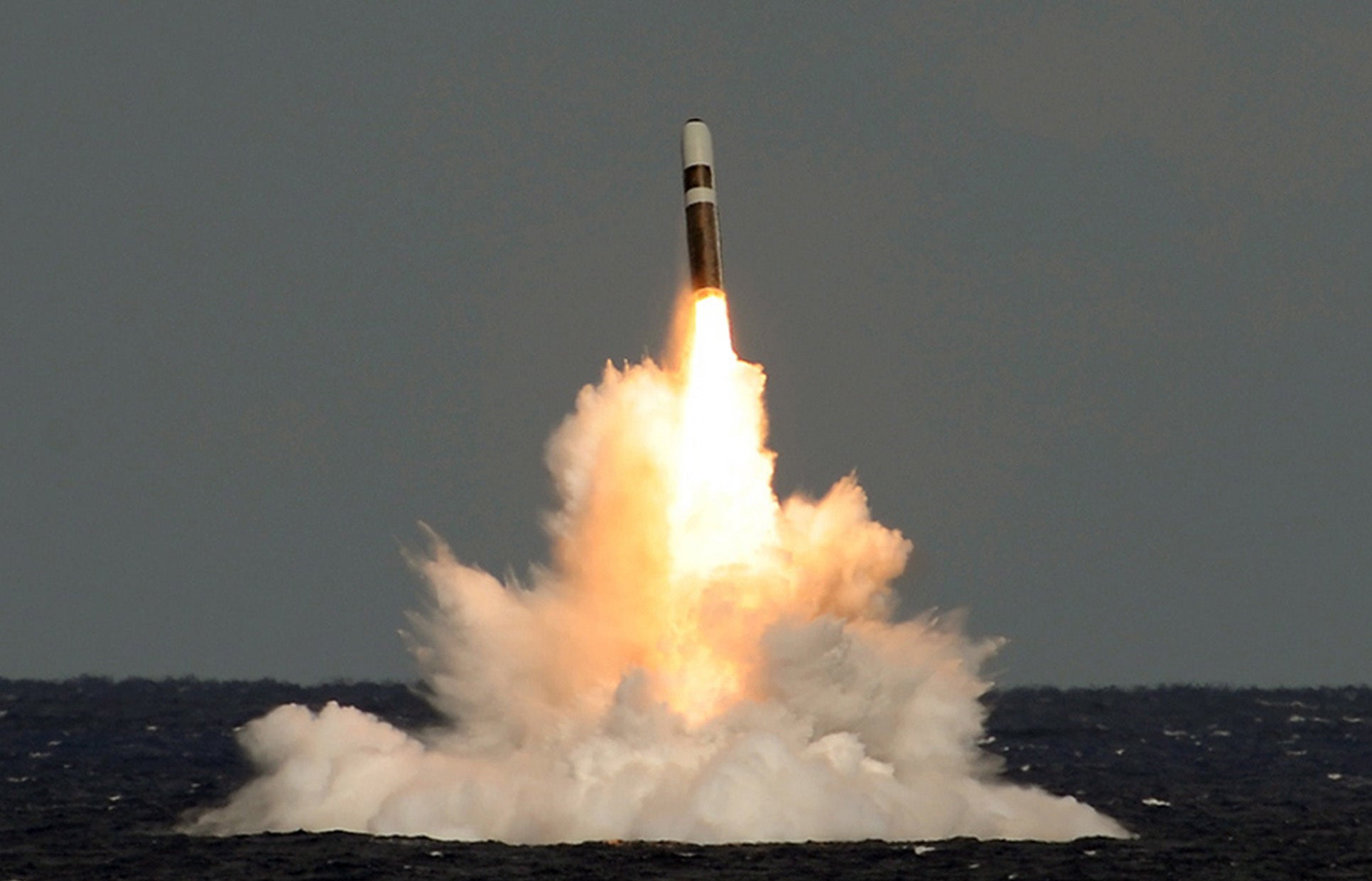Britain’s nuclear weapon plan makes little sense at home or abroad
Attacked by Russia and Iran, Boris Johnson’s plan to increase Britain’s nuclear weapons stockpile also has domestic critics, reports defence editor Kim Sengupta


Britain’s boosting of its nuclear arsenal, and the threat to use it in response to cyberattacks, has been seized on for criticism by adversaries abroad, and questioned by senior security figures at home.
The Integrated Review of Security, Defence, Development and Foreign Policy stated that the UK will raise its nuclear weapons stockpile by 40 per cent while being prepared to use Trident missiles against threats from “emerging technologies” or chemical and biological weapons.
Russia and Iran, states which had both faced criticism on nuclear issues, accused the UK of hypocrisy and double standards, charging that its new nuclear stance dealt a serious blow to arms control, and gravely risked international security and stability.
In this country, among those questioning the moves was Major General Jonathan Shaw, a former SAS chief as well as a former assistant chief of defence staff, dealing with policy on chemical, biological and cyber issues.
“How is raising our strategic warhead cap relevant to a potential rise in the short- and medium-range nuclear threat? Potentially increasing our strategic arsenal in response to the potential increased tactical threat from Russia seems inappropriate and disproportionate,” said Maj Gen Shaw, writing in The Independent.
“And if it is seriously the government’s intent for nuclear weapons to be a potential response to a cyberattack, then the moral, legal and practical difficulties of this posture need exposing in future papers; for the challenges are legion.”
Read more:
Maj Gen Shaw stressed that the threat of a nuclear response would not be a deterrence to terrorist or hacking groups which wanted to carry out a cyber, chemical, biological or nuclear “dirty bomb” attack.
He pointed out that Sir Michael Quinlan, one of the foremost authorities on deterrence theory, stated that “deterrence works by displaying the prospect of costs in terms of values prized by the ‘deteree’”. Hence, nuclear weapons “can certainly play no useful direct role against terrorists, who themselves have no evident asset base that nuclear weapons could credibly threaten”.
Beyza Unal, deputy director of the International Security Programme at the Chatham House think tank, commented that the reasoning behind the raising of the cap is not clearly defined and the logic behind taking the step was flawed.
“It would seem that the logic of increasing the number of nuclear stockpiles is quite arbitrary and rests on the Cold War logic of keeping a certain number of stockpiles in order to achieve credible deterrence. In this case, it associates to the maximum number of stockpiles that can be deployed in two submarines that are on patrol”, she said.
“So, was the UK’s nuclear deterrence not credible with 225 nuclear warheads; but it will be credible with 260 warheads? How can 35 extra warheads ensure second strike capability and make the UK safer and secure against deliberate nuclear attacks?”
“Such repositioning of the UK response though is inconsistent with the real threat, especially because Russia mainly follows ‘grey zone’ activities which cannot be countered with increased nuclear warheads,” she added. “I do not see a holistic credible deterrence so far against such Russian grey-zone activities in this strategy.”
Boris Johnson’s government has held that the review’s changes to nuclear weapons policy had been necessitated because of new threats. Dominic Raab, the foreign secretary, described the moves as an “ultimate insurance policy”.
But Iran, which signed an agreement on its nuclear programme with international powers – one subsequently abandoned by the US under the Trump administration – accused the UK of “utter hypocrisy”.
During the Commons debate on the Integrated Review, Boris Johnson claimed there was a need for new security measures because of “the disruptive behaviour of Iran and particularly, of course, we are concerned about Iran developing a viable nuclear weapon.”
The UK signed up to the Iran nuclear agreement, JCPOA (Joint Comprehensive Plan of Action) and remains committed to it along with fellow signatories France, Germany, Russia and China.
The British government, along with these states, has not claimed that Tehran is now engaged in acquiring the bomb, and has publicly refuted Donald Trump’s claim that it was doing so.

Iran’s foreign minister, Mohammad Javad Zarif, one of the architects of the JCPOA, tweeted that “unlike the UK and allies, Iran believes nukes and all WMDs are barbaric and must be eradicated”.
Soon after his election, Joe Biden formally agreed with Vladimir Putin to extend the nuclear arms treaty between America and Russia and avoid a renewed arms race.
Boris Johnson’s new-found toughness on nuclear arms allowed Russia to attempt to reach for the moral high ground.
“We are very sorry that Britain has chosen the path of increasing the number of nuclear warheads,” said Kremlin spokesman Dmitry Peskov. “This decision will harm international stability and strategic security.”
Join our commenting forum
Join thought-provoking conversations, follow other Independent readers and see their replies
Comments
Bookmark popover
Removed from bookmarks